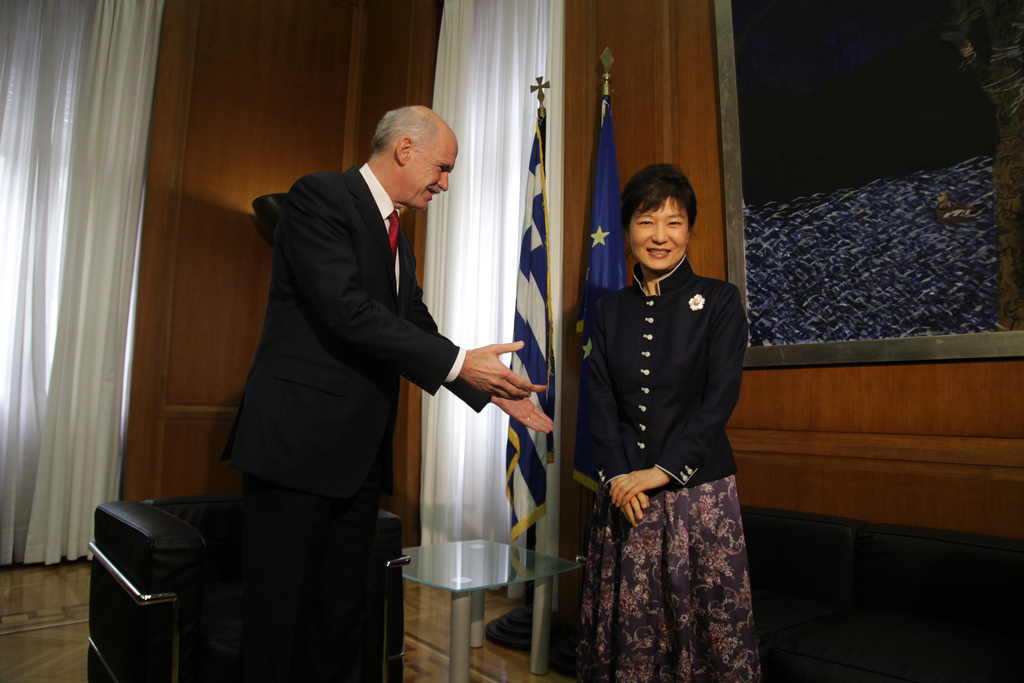The Peninsula
Park Geun-hye Wins South Korean Presidency But Big Issues Ahead

By Nicholas Hamisevicz
A year of transitions finishes in historic fashion as South Korea elects Park Geun-hye as its first female president. Her election capped off a series of democratic presidential elections that featured nicely at the beginning and end of this year of transitions, leading off with Ma Ying-jeou winning reelection in Taiwan. Yet North Korea still tried to garner all of the attention. Kim Jong-il’s death in late December 2011 and the rocket launch this December briefly took headlines away from these important elections. Despite these North Korean events, much of the focus will turn to the new leader in South Korea. While Park Geun-hye will still have to deal with North Korea and relations in the region, she will also have a heavy domestic agenda that will be vital for the future of South Korea. Her ability to handle North Korea relations while working toward solutions to domestic issues will determine the rest of her legacy in the Blue House beyond being South Korea’s first female president.
While there is no polling data yet on the impact of the North Korean rocket launch or the effect of important voter concerns on the election, relations with North Korea were likely seen as an issue during the election, not the issue. There were increasing sentiments in South Korea that Lee Myung-bak’s policy was not working. Both Moon Jae-in, the progressive candidate, and the conservative Park Geun-hye, offered ideas on reengaging North Korea. Some of Park’s ideas during the campaign for reaching out to North Korea consisted of humanitarian aid, resuming family visits, diplomatic, and social exchanges, and expanding Kaesong. These possibilities for dealing with North Korea would all fall under her trustpolitik policy toward North Korea. While still vaguely defined, the recent North Korean rocket launch will probably force Park Geun-hye to emphasize the trust part of the trustpolitik early in her administration.
A more cautious approach toward North Korea will help U.S.-South Korea relations remain positive and allow for the U.S. to be more prepared for South Korea’s engagement process with North Korea. The U.S. would like to follow South Korea’s lead with inter-Korean relations, and appear in coordination with its ally. Ideas like restarting humanitarian aid to North Korea or expanding Kaesong are politically feasible for support in both South Korea and the United States.
Even with all of these issues connected with North Korea, Park Geun-hye has an ambitious domestic agenda as well. Chaebol reform, rising education costs, an increasing unemployment rate, and creating greater economic gains throughout Korean society were all important campaign topics. Many of these issues fall under the rubric of “economic democratization,” key buzzwords during this election and involving the idea of closing the gap between rich and poor in Korea and making sure all Koreans can gain from its overall economic success. Moreover, a demographic challenge will also require Park to find ways to address some of these issues quickly as well as hope the interconnections in many of these problems also permeate through many of the solutions.
With pressure to fix the domestic economy and South Koreans’ individual welfare along with a desire to see improved relations with North Korea, Japan, and China, all while not ruining the current positive U.S.-Korea relationship, Park Geun-hye will have to work quickly on both fronts to have a chance of succeeding. Opportunities are there for both South Korean domestic and international success. All South Korean presidents have to navigate a potentially turbulent Northeast Asia while solving domestic problems. Yet the emphasis and importance placed on Korea because of an Asia-Pacific century, the expectations for a Global Korea, uncertainty over the future of North Korea as well as U.S.-China relations, and the need for continued economic success only increases the difficulty and necessity for a impactful Park Geun-hye administration for the future of South Korea.
Nicholas Hamisevicz is the Director of Research and Academic Affairs for the Korea Economic Institute. The views represented here are his own.
